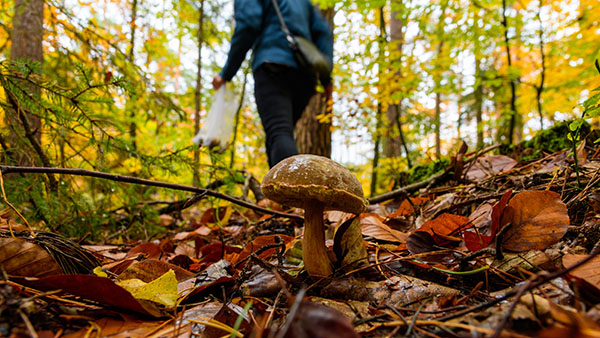
Refill your stockpile in no "thyme" at all
Growing your own vegetable garden can be a fun and rewarding hobby that can also keep you alive when SHTF. While it may seem like a daunting task at first, you don't have to be a master gardener, invest in expensive equipment, or even have an entire acre of land to have a flourishing garden. You can simply start small and learn as you go, eventually increasing your experience at having a self-sustaining food supply. Here are a few guidelines you can follow:
- Choose the right location. One of the first things you need to do is decide where you want your garden to be. Consider the space you want to allot, the amount of sun exposure your plants need, and the type of soil you have available. (Related: Gardening hacks: High-yield strategies to make the most out of your space.)
- Design your garden. While this step isn't a necessity, adding your flair to your garden instead of a hodgepodge of random vegetables makes gardening a whole lot more fun.
- Set up all your tools. Gardening tools don't have to be expensive to do their job effectively. There are all kinds of tools and gadgets available that can make your gardening experience more comfortable. Just remember never to go overboard. Buy what you need and what you can afford.
- Read up on garden maintenance. It is said that one should learn through experience, but doing a little advanced reading won't hurt. Whether it's pruning, weeding, or even planting, there's always something to keep you busy when you garden. Being more knowledgeable in performing these tasks can go a long way in making home gardening a pleasant experience.
Now that you've plotted out your garden and learned whatever you can about the basics, only one question remains: What should you plant? Like designing a garden, this is usually a matter of personal taste and preference. Some people don't like certain vegetables, so plant what you like. You should also consider planting based on your available time and how much effort you want to put into maintaining your plants. To put it simply, do your own research and decide what works best for you and your situation. However, if you plan on gardening to resupply food stocks in a grid-down scenario, consider planting high-calorie foods like potatoes and peas.
Too much food, so little time
After harvesting your crops, you won't eat everything at once. You need to find a way to save what you don't eat immediately. Two of the more popular methods of food preservation are freezing and home canning. Both have their advantages and disadvantages, and there are plenty of resources available to help you learn more about them.
Of the two methods, freezing food is significantly faster and easier than canning. You need a home freezer, preferably a chest freezer because they can hold quite a bit of food and retain their temperature when opened. It takes less time to process the food and uses very inexpensive containers to keep all the food safe. However, the freezer itself would take a large chunk out of your savings.
Canning food is a much longer process and can be quite exhausting, depending on how much you plan on canning per day. The equipment for this method is also quite expensive, but not as much as getting a freezer. The advantage this has over freezing is that you aren't reliant on electricity to keep the food from going bad. Once it's on the shelf, it'll stay fresh for a very long time.
Maintaining your own vegetable garden can be hard work, but the results are extremely rewarding. Learn more about the wonders of having your own sustainable food supply at HomeGardeningNews.com.
Sources include:
Please contact us for more information.























